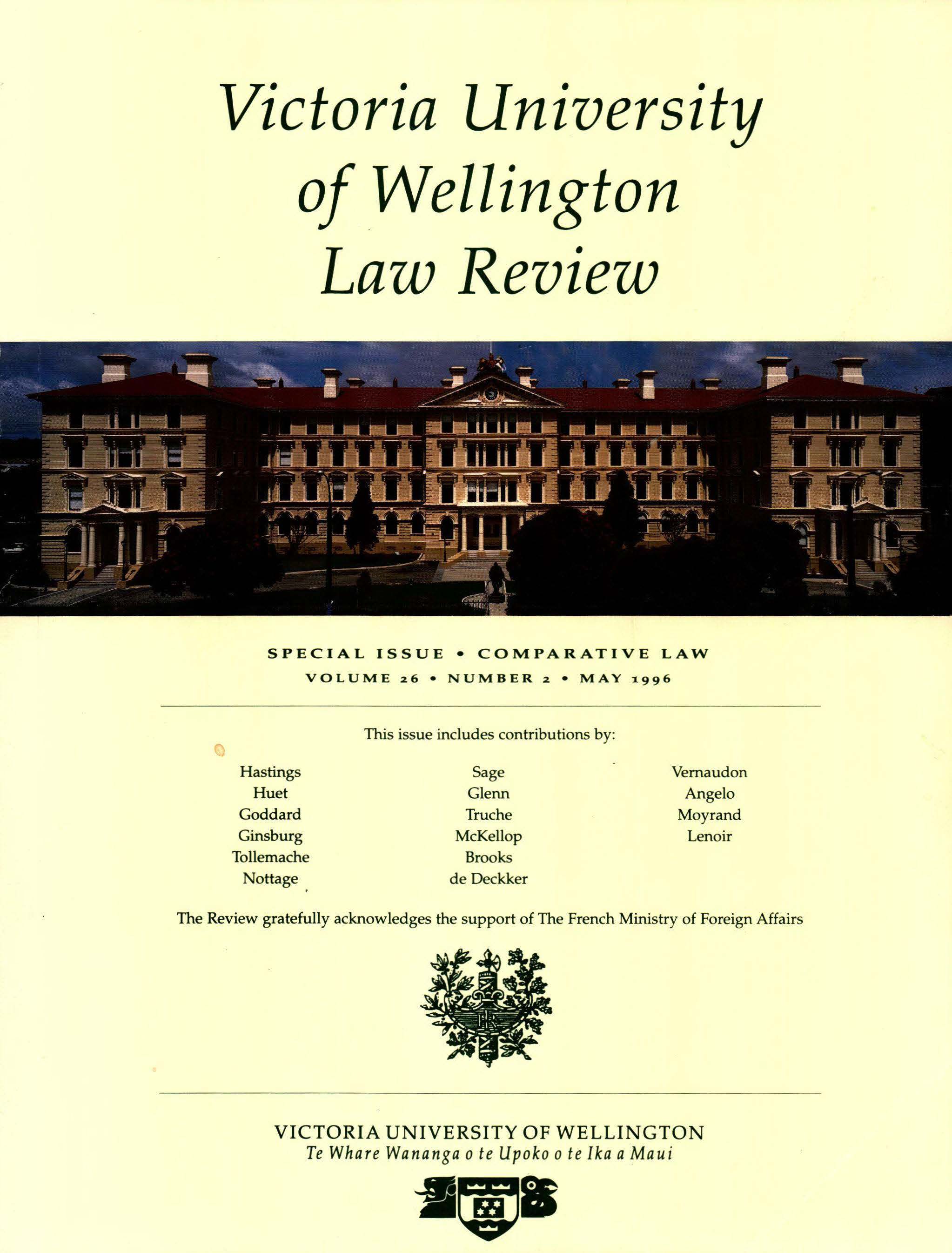French Law of Delict: The Role of Fault and the Principles Governing Losses and Remedies
DOI:
https://doi.org/10.26686/vuwlr.v26i2.6166Abstract
The author explores the French law of delict, which is based on the fundamental concept of damage. Proof of damage is mandatory in delictual claims. The function of civil responsibility is first of all, to indemnify: it can be independent of fault, but it presupposes damage. Judicial compensation or reparation of the harm does not necessitate full compensation in every case as this may be influenced by insurance, other forms of compensation and general policy considerations. Compensation can be made either in kind or in money. The latter is easily quantified and effected, but compensation in kind is more difficult to achieve. The study of the evolution of civil liability clearly indicates a gradual and continuous transfer from fault to guarantee.
*Note: a French language summary of this article can be found at 310.
Downloads
Downloads
Published
How to Cite
Issue
Section
License
Authors retain copyright in their work published in the Victoria University of Wellington Law Review.


